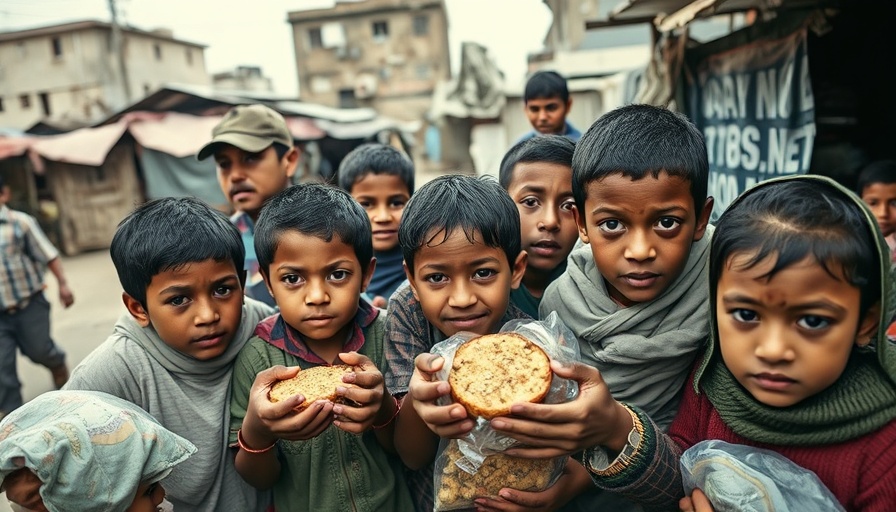
A Looming Crisis: Food Shortages in Gaza
Recent developments have shed troubling light on the dire situation facing Palestinians in Gaza, with internal Israeli military reports revealing that starvation is a real possibility unless humanitarian aid is restored promptly. For months, Israel's government has downplayed the gravity of food shortages resulting from an ongoing blockade, but military officials are now sounding alarms about the urgency of the humanitarian crisis.
Understanding the Blockade's Impact
The Israeli blockade, implemented to curb the operations of Hamas, has significantly restricted food and fuel supplies to Gaza. While government officials insist that civilian life remains unaffected, the reality speaks otherwise. I've learned that military personnel monitoring the situation have privately warned that many areas in Gaza could soon run out of food essential for survival. Defying governmental rhetoric, these officers emphasize that conditions are deteriorating rapidly.
How Aid Agencies View the Situation
Aid organizations, including the United Nations, have been vocal about the alarming foresight of a famine in Gaza. Their warnings align with internal Israeli assessments, presenting a stark contrast to public statements made by Israeli leaders. Given that humanitarian aid requires time to mobilize, officials are worried that failing to act immediately could result in catastrophic outcomes for the population.
The Growing Acknowledgment of the Crisis
The internal revelation among Israeli military officials is significant. As the government has vowed to expand military action to dismantle Hamas and secure the release of hostages—twin goals that have not yet been achieved over more than 19 months of conflict—an acknowledgment of potential starvation creates a moral and ethical dilemma. Israeli Prime Minister Benjamin Netanyahu's bold declarations for continued military aggression further complicate the situation.
What This Means for Civilians
The potential for widespread starvation paints a grim picture of human suffering. Families depend on humanitarian aid for basic necessities. A quick analysis shows that if food deliveries do not resume soon, areas already struggling may easily descend into deeper levels of deprivation.
Counterarguments and Diverse Perspectives
While some Israeli officials highlight the looming starvation, others maintain that the blockade is a necessary measure for national security. This ongoing debate underscores a critical point: the interplay of military strategy and humanitarian needs must be examined closely. Can the international community take measures to ensure both security and the well-being of civilians caught in the crossfire?
The Path Forward: What Needs to Happen
In light of this escalating crisis, immediate international engagement is crucial. Leaders need to push for the resumption of humanitarian aid while addressing the security concerns of Israel. A coordinated response could help avert disaster, balancing humanitarian access while considering the protection of all civilians involved.
Conclusion
The crisis in Gaza is complex, blending urgent humanitarian needs with deep-seated geopolitical challenges. In light of these dire forecasts, it is essential for global leaders and organizations to work together to find solutions that prioritize human rights while addressing security concerns. Ignoring the impending threat of starvation could lead to a larger tragedy with lasting implications.
 Add Row
Add Row  Add
Add 




 Add Row
Add Row  Add
Add 

Write A Comment